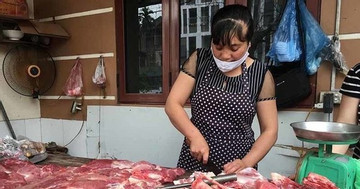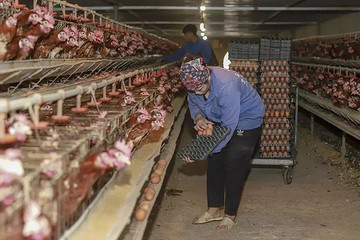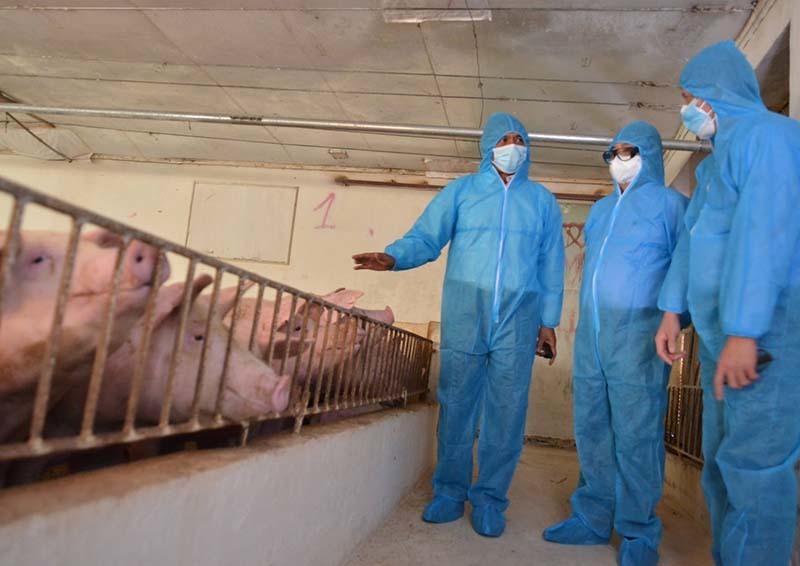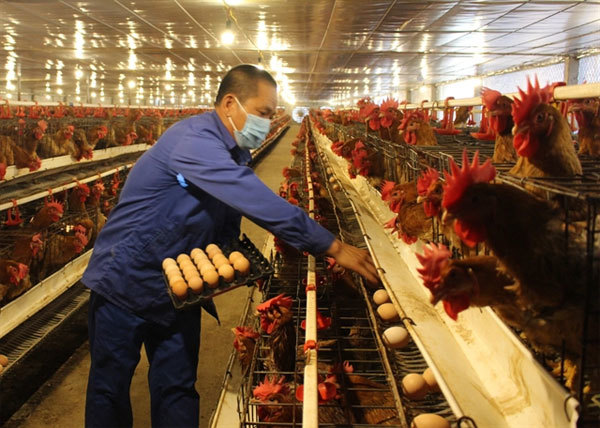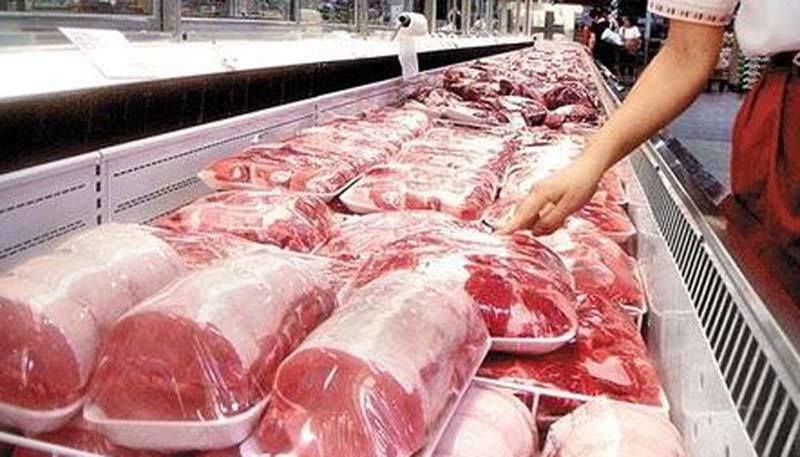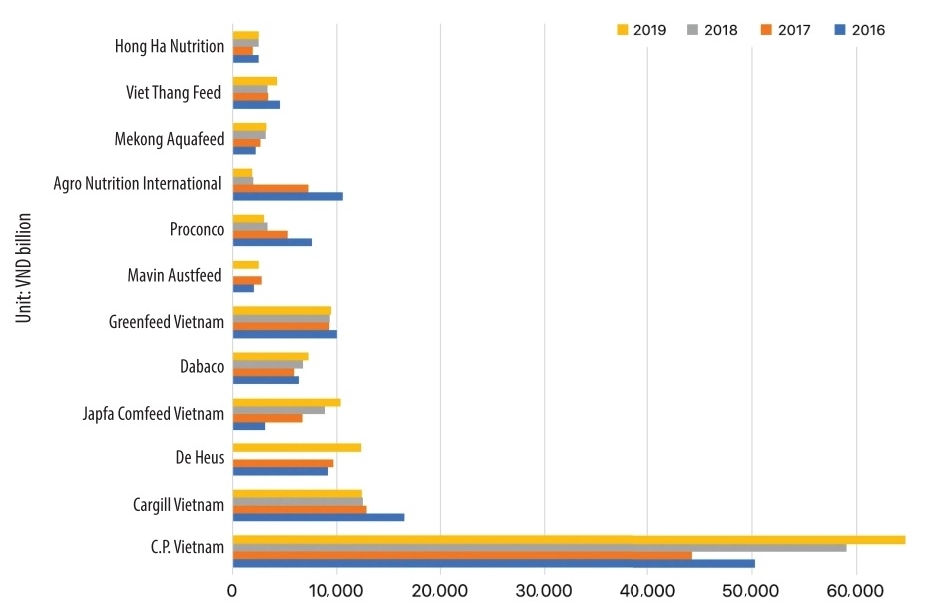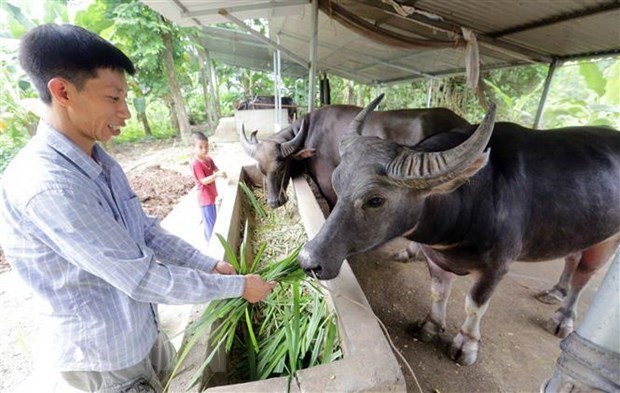- © Copyright of Vietnamnet Global.
- Tel: 024 3772 7988 Fax: (024) 37722734
- Email: [email protected]
animal feed
Update news animal feed
Pig prices soar, livestock companies earn huge profits
A live pig shortage has helped major players in the animal husbandry sector pocket big profits, with some earning tens of times more than in the same period last year.
Vietnam's animal feed imports jump to US$3.1 billion
Vietnam's imports of raw materials for processing animal feed in the first seven months of this year surged to US$3.1 billion as domestic supply only met about one-third of local demand.
Measures to stabilize pork prices to be immediately implemented
The Government Office yesterday released Document No.4679/VPCP-KTTH about the direction of Deputy Prime Minister Le Minh Khai on stabilizing the prices of pork and animal feed, which have increased significantly lately.
US$9 billion burden for farmers as feed prices rise
For more than a year, the price of animal feed has increased 10 times in a row and is rising further.
Farmers make modest profits and merchants pocket big money, so who’s to blame?
Experts have pointed out that the distribution of benefits in the livestock production chain has become unreasonable. Farmers who make products only earn a modest profit, while most of the money goes to merchants’ pockets.
Vietnam should reduce imports of animal feed ingredients: experts
The Vietnam Poultry Breeders Association has said the Government should have a strategy to develop feed ingredients domestically to reduce their imports.
VN tycoon considers major deal, competes with foreign rivals in $10bil market segment
Masan Group billionaire Nguyen Dang Quang is considering a billion-dollar deal in an area that is Vietnam's strength but has been controlled by large foreign corporations for the past decade.
Rising material and feed costs bridle husbandry companies
Husbandry companies are being squeezed on two fronts, with prices for poultry and cattle stagnating and falling in some cases while animal feed material prices have been surging, pushing many to halt production or even declare bankruptcy.
Vietnam commits to buy US$3 billion farm produce to balance trade with US
 The import staples include cow, wheat, fruit, corn, soy, and animal feed which will be purchased in the next two to three years.
The import staples include cow, wheat, fruit, corn, soy, and animal feed which will be purchased in the next two to three years.
Vietnam seeks to develop modern livestock industry
 Policies on planning, science-technology, finance, commerce and training human resources, have contributed to turning the country’s livestock industry into a strong commodity production sector.
Policies on planning, science-technology, finance, commerce and training human resources, have contributed to turning the country’s livestock industry into a strong commodity production sector.
African Swine Fever challenges Vietnam's animal feed producers
 The Vietnamese animal feed market is considered very promising with the value of $6 billion a year. However, feed producers have faced difficulties because of African Swine Fever (ASF).
The Vietnamese animal feed market is considered very promising with the value of $6 billion a year. However, feed producers have faced difficulties because of African Swine Fever (ASF).
Pork imports spike, Vietnam's livestock industry under pressure
 Vietnam has increased pork imports in the last six months amid the African swine fever epidemic. However, the quality of imports is questionable as Vietnam’s agencies are still weak at quarantine work.
Vietnam has increased pork imports in the last six months amid the African swine fever epidemic. However, the quality of imports is questionable as Vietnam’s agencies are still weak at quarantine work.
Animal feed market in the hands of FIEs
VietNamNet Bridge - Analysts estimate that foreign invested enterprises (FIEs) now hold 80 percent of the animal feed market share, while Vietnamese enterprises only have 20 percent.
Pork price escalates, FIEs benefit
VietNamNet Bridge - The pork price has bounced back, increasing by VND48,000-50,000 per kilogram. It dropped so much one year ago that the country had to launch a ‘pork rescue campaign’.
High feed prices cut into animal husbandry’s profits
Input material prices have decreased, but the price of animal feed remains unchanged, and, as a result, breeders have incurred heavy losses as the live pork price has dropped dramatically.
Importation of antibiotics tightened
The Ministry of Agriculture and Rural Development has issued regulations to tighten the import of antibiotics to prevent misuse of the substances in breeding of sea animals.
Pig farms of CP Group polluting Buoi River
VietNamNet Bridge - The increase in the number of big farms which do outsourcing for CP Group has contributed to serious pollution in many localities.
Agriculture Ministry to improve investment conditions
The Ministry of Agriculture and Rural Development will review and evaluate the support and development for enterprises. Thereafter, it will propose to adjust and add policies to create favourable conditions for enterprises investing in agriculture.
Animal feed manufacturers run a 3F race
Masan Group created a tripodal position in the 3F (feed, farm, food) race soon after Anco, where Masan holds a 70 percent stake, becoming the strategic shareholder of Vissan, the nation’s leading food supplier.
Big M&A deals remap animal feed market
VietNamNet Bridge - The animal feed market has been busy recently with many merger & acquisition deals carried out by major companies.


